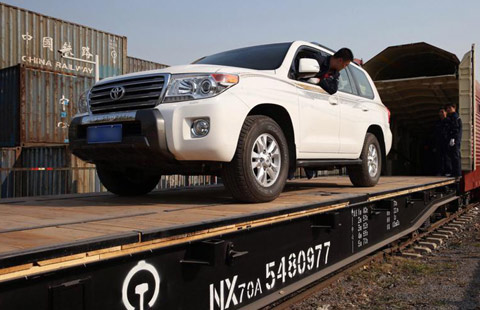New law is under discussion
By Wu Wencong (China Daily) Updated: 2012-05-02 08:08
A new law and guidelines on the use of a national ecological compensation plan are currently being formulated and will be launched before 2015, according to Mu Hongqiang, deputy chief engineer of the Yangtze River Valley Water Resources Protection Bureau.
Although the plan has been under discussion for many years, the ecological compensation system is still one of the weakest links in the 2008 Water Pollution Control Act.
One of the most successful models is that in Chengdu and the Aba Tibetan and Qiang autonomous prefecture in Sichuan province. Situated on the upper reaches of the Minjiang River, the source of most of Chengdu's drinking water, Aba stopped deforestation work in the 1990s in a bid to prevent soil erosion and to conserve natural sources of water. That occurred in tandem with the closure of a number of industries that were heavily polluting, such as leather tanneries, paper mills and gold mines.
To compensate Aba for the economic loss, the Chengdu government built a 30-square-kilometer industrial park on the outskirts of the city. The local government provided 60 percent of the funding, but takes only 35 percent of the profit.
"The Chengdu-Aba Industrial Park is unique," said Zhong Qinjian, deputy head of the Sichuan Provincial Bureau of Environmental Protection. "The compensation model is a success, but it is largely based on Chengdu's support for Aba's post-disaster reconstruction work after the 2008 Wenchuan earthquake that took place there." However, he warned that other cities may lack the incentives and the economic capability to offer this type of compensation to their upstream neighbors.
Meanwhile, Mu said the compensation system has yet to be established at a national or even provincial level. "One of the problems is that the contribution of the city on the upper reaches of a river to those located downstream is hard to evaluate," he said. "However, the cities upstream also need to protect the environment for their own benefit and downstream cities should not have to pay for that."
- Carving reshapes local economy
- More than 40% of China's arable land degraded
- Head of Uber Asia: provide values for car owners and riders
- Economic growth to further moderate in 2015 and 2016: UBS
- Cross-border yuan settlement rising: BOC report
- Banks expect cross-border yuan use to accelerate
- China, Qatar vow to deepen oil, gas cooperation
- Sony employees demand better severance
















